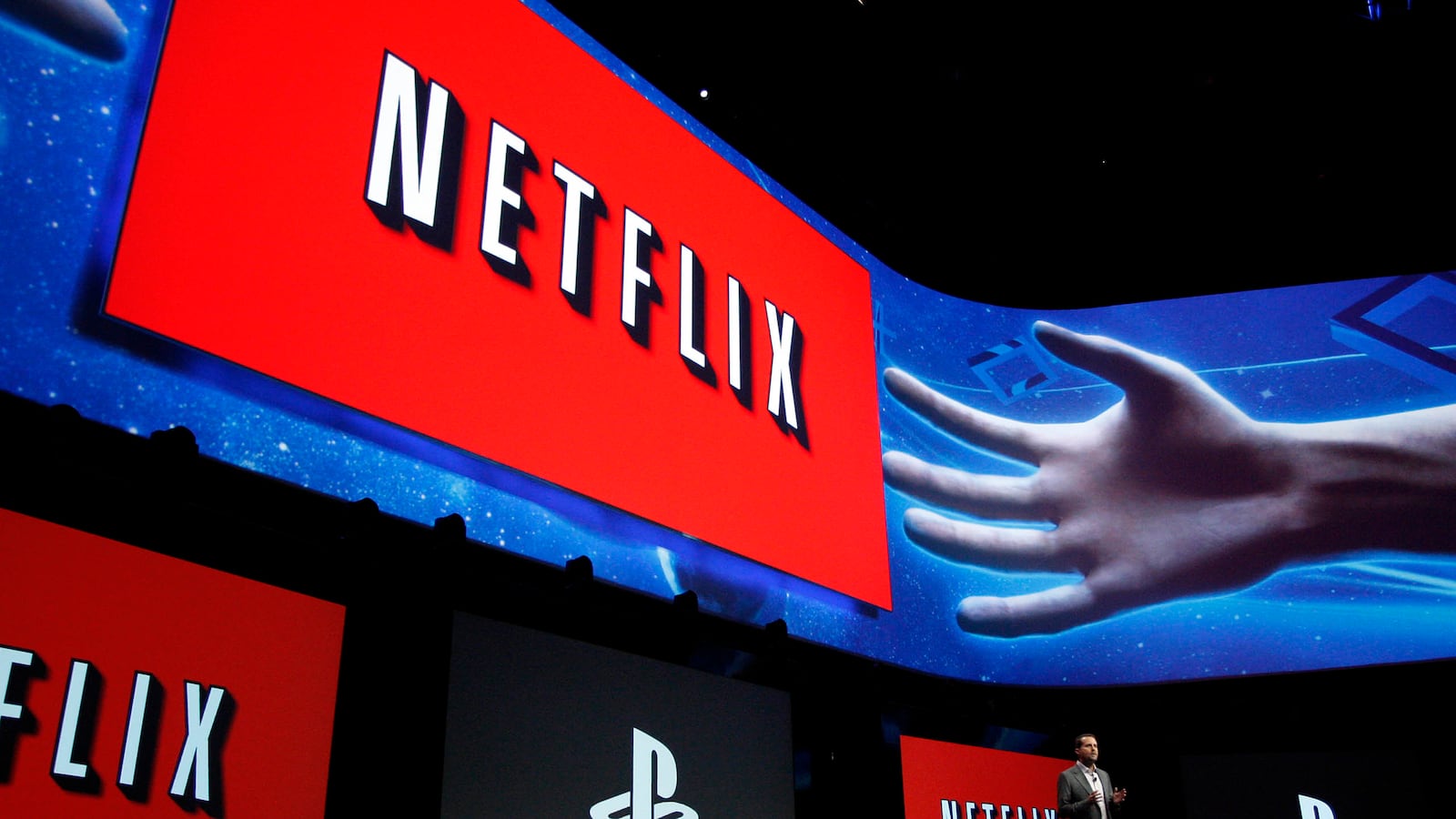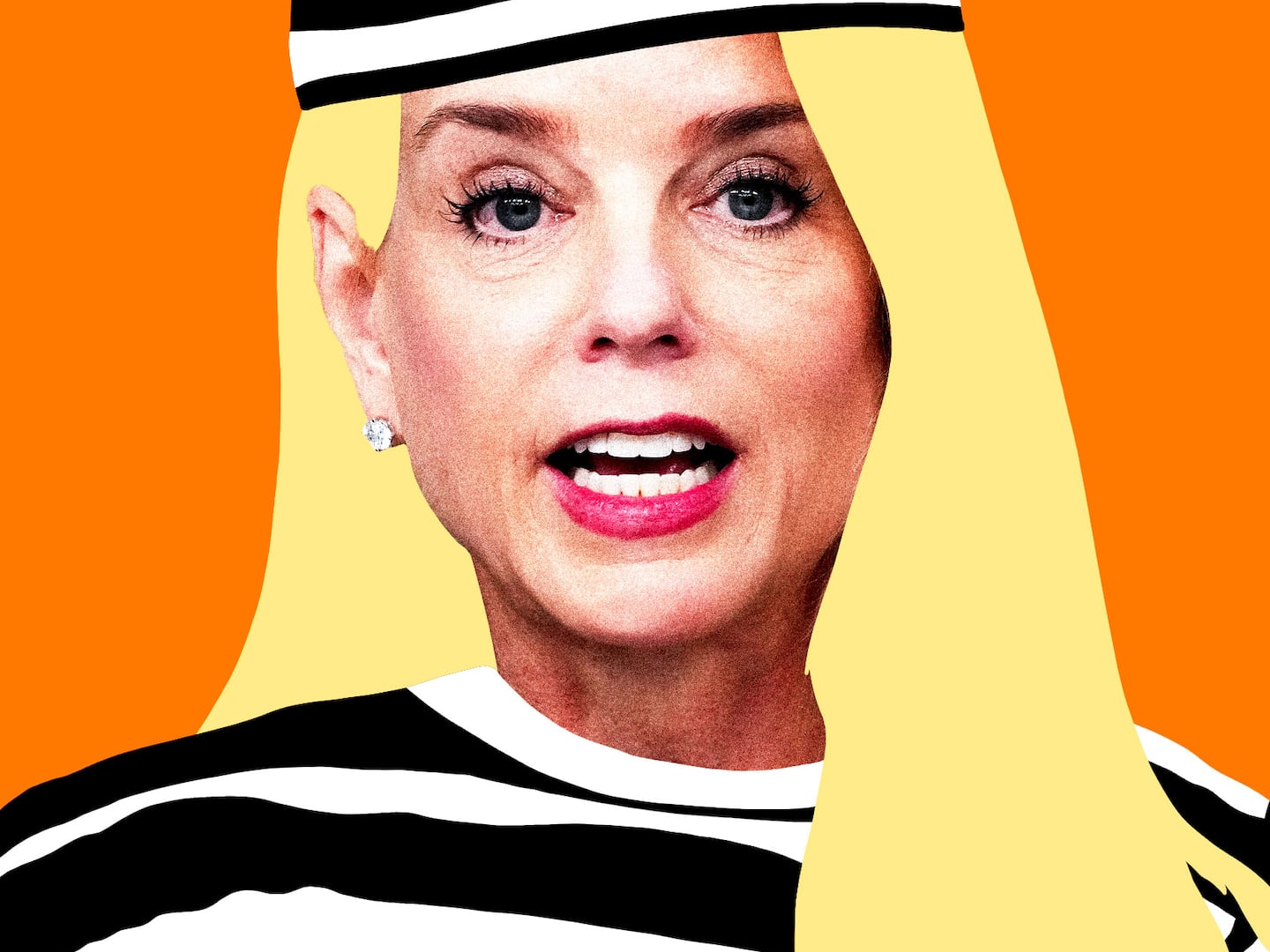Apple is in talks with Comcast, the nation’s #1 cable giant, about starting a new Internet-based streaming service, The Wall Street Journal reported yesterday. And that could pose a big threat to Netflix. Netflix shares are down another 3% today, in fact, after dropping 4% on Friday as well.

A deal between Apple and Comcast would be a huge advance for Net-TV, streaming live and on-demand video from a new Apple set-top device plugged directly into Comcast cable systems. But it also could hasten the erosion of a far bigger business at Comcast—cable-TV, in which fat packages of dozens of channels afford high profit margins and mask barely detectable price increases and any link between usage and pricing.
That might be good news, eventually, for viewers tired of having $5 a month of their total cable bill go to ESPN, which is watched overall by maybe 2% of all viewers. But it could be bad news for Comcast and its shareholders.
And it would be worst of all for Netflix, whose stock price quadrupled last year (from $92 to $368 a share). All along, Netflix has compared itself to HBO, following the old saw that you’re judged by the size of the guy you fight. But it may turn out the real competition isn’t HBO after all. It’s Apple. And Apple could eat Netflix alive.
Word of the Apple-Comcast talks could feel like a betrayal to the folks at Netflix. The high-flying streamer just signed a deal to start paying Comcast extra to give special treatment to Netflix video and plug the feed directly into the Comcast cable box. Netflix did this after whining for a couple of years about cable giants’ ability to slow video traffic or charge more for the biggest data hogs, and in spite of the Federal Communications Commission’s crusade to restrict cable systems’ right to manage traffic and pricing as they see fit.
The FCC has lost court decisions twice in this overreach and still deigned to impose restrictions on Comcast as a condition for letting it buy NBC Universal from GE. Watch for the agency to slap still more restraints on Comcast as a vigorish for letting it buy Time Warner Cable.
Now comes an Apple effort to one-up Netflix by streaming not just on-demand movies and series but also live programming, over the Net to a new Apple gadget (presumably an upgrade of the old and slow-selling AppleTV) that stands between Comcast and its own subscribers. So much for any first-mover advantage to Netflix.
Amazon and Hulu can’t be far behind. They are stepping up production of original shows to challenge Netflix. Amazon just raised the Prime price to $90 from $70 a year for “free” delivery and online video, and Hulu is waging a new, high profile marketing campaign. Surveys show some 60% of homes that subscribe to video services get more than one, so Neflix isn’t yet feeling any effects from the new competition.
But if Apple gets serious about a new streaming service, Netflix would have the most to lose. Apple has $40 billion in cash and investments on hand; Netflix has just $1.2B. Apple’s market value is at $480 billion even after a long fall to $536 now from $700 a share in September 2012; Netflix’s value is at all of $22B. In fact, maybe Apple should just buy Netflix outright.
NFLX has done a great job pushing its customers to drop old, cumbersome DVDs and switch to streaming on the Internet. But Apple need not buy it at these lofty prices. Instead, Apple could wait and rev up a new AppleTV streaming service, with Comcast offering it instantly in 30 million homes. Netflix has little room for error: On $1.18 billion in revenue last quarter, it held on to only $5 million in free cash.
Give it a few years, and Apple one day may be able to buy Netflix on the cheap.






